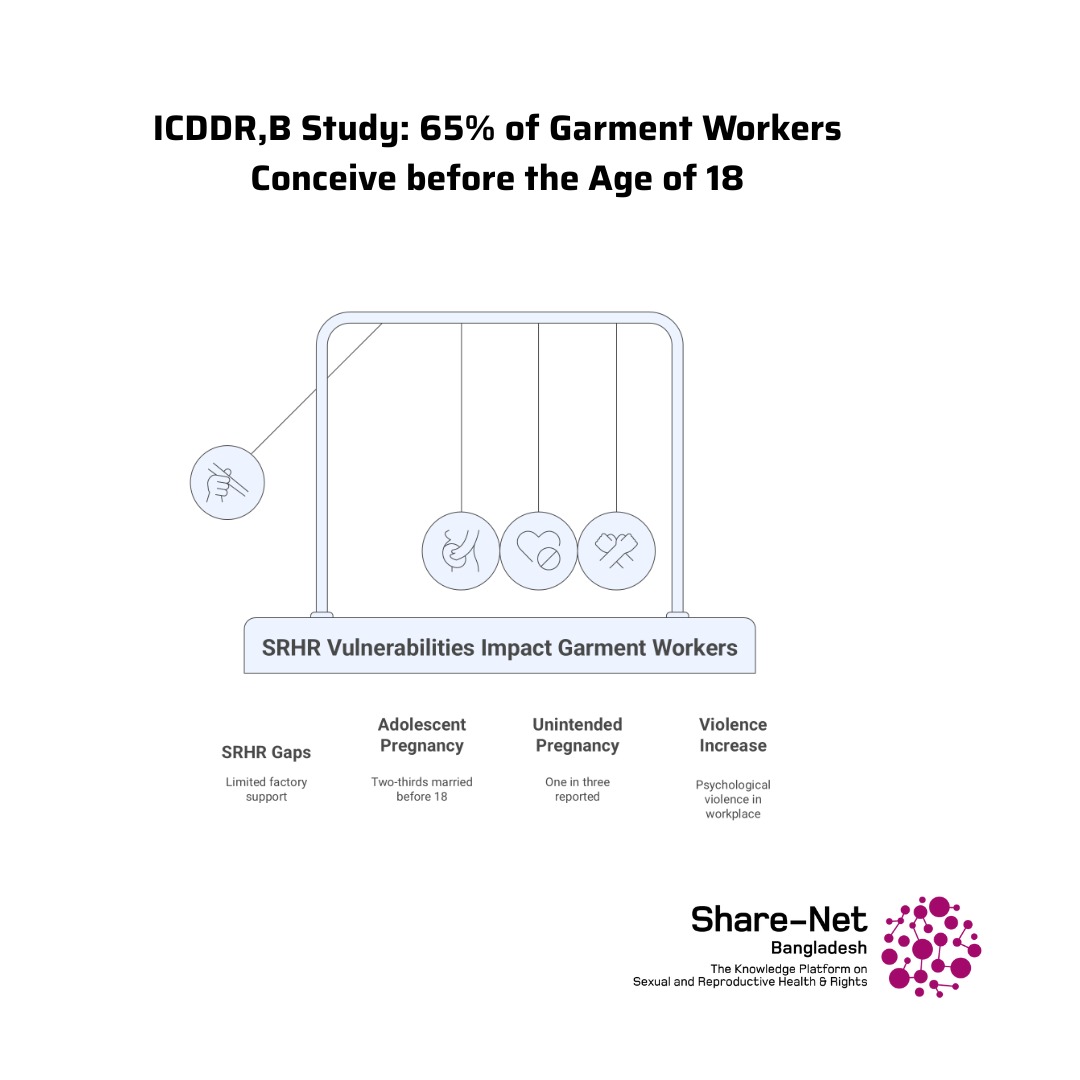ICDDR,B Study: 65% of Garment Workers Conceive before the Age of 18
On September 29, 2025, icddr,b presented findings from Bangladesh’s first longitudinal cohort study on the sexual and reproductive health and rights (SRHR) of female garment workers. Conducted over 24 months in urban slums of Dhaka and Gazipur, the study followed 778 women aged 15–27 working in the ready-made garment (RMG) sector.
The research uncovered significant vulnerabilities in reproductive health. Two-thirds of participants were married before 18, and nearly 65% experienced their first pregnancy before reaching adulthood. One in three reported at least one unintended pregnancy, while one in four had undergone an abortion or menstrual regulation procedure.
Despite these challenges, awareness of reproductive health options improved. Knowledge of long-acting family planning methods rose from 49% to 70%, and awareness of emergency contraceptive pills increased from 15% to 39%. Attitudes supporting gender equality in family planning also grew from 54% to 71%.
Violence emerged as a persistent issue. Spousal violence remained widespread, and psychological violence in the workplace increased from 48% to 55%. Formal help-seeking was rare, and informal support-seeking declined from 35% to 21%. Reporting workplace violence remained unchanged, with only one in five women disclosing incidents.
Factory-level support for SRHR was limited. Just 22% of surveyed factories provided sanitary pads, and only 14% offered family planning materials. These gaps underscore the need for workplace-based health services.
The study also examined factors influencing adolescent pregnancy and exposure to violence. Women with nine or more years of education, who married later, or used contraception before their first pregnancy, were less likely to experience adolescent pregnancy. In contrast, spousal violence increased the risk by 26%.
Empowerment played a protective role. Greater decision-making power reduced psychological and sexual violence. Freedom of mobility lowered the risk of physical violence, and the ability to express opinions was linked to reduced sexual violence.
This landmark study offers a robust evidence base for designing policies and programs that improve SRHR outcomes, workplace safety, and overall well-being of female garment workers—while reinforcing the link between health equity and industrial sustainability.
Link: icddr,b – NewsDetails

